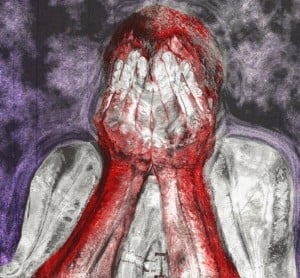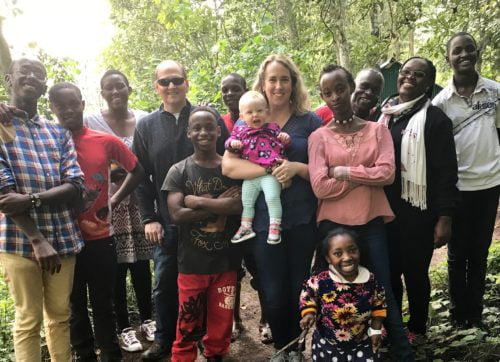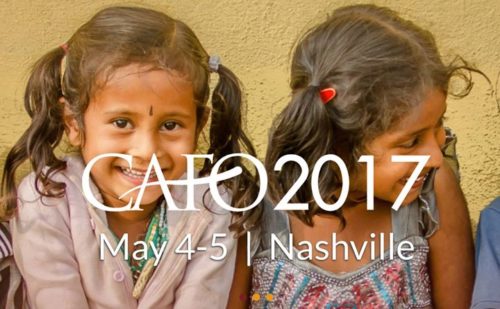In so many communities, there’s a “How are you?” “I am fine” sweetness in the air. We don’t say that we’re having trouble paying our bills this month. We don’t say that our relationship is in a rocky season. We don't say our child is having behavior problems at school.
There’s so much we keep to ourselves. Shame gets the best of us.
Now, I know I’m stepping on toes as I say this, but from my pastoral vantage point, I’ve seen folks preferring a vision of reality rather than their actual reality. Appearing put together while truthfully falling a part on the inside. . . .
To this situation enter this week's word: talk a word that means to speak in order to give information or express ideas or feelings; converse or communicate by spoken words.
Sometimes leaders are the WORST when it comes to authentic talking.
In my first book, Birthed, I wrote about what it was like to be the pastor of a congregation while also going through the deep heartache of child loss, infertility treatments and adoption failure. I wrote about what it was like move to a part of the country where I couldn’t find work and for a time lost all sense of identity outside my husband’s. I also wrote about the days when I wondered if anyone would miss me if I were gone how I succumb to a lot of nothing and eating popcorn in bed.
I know at the time, I was probably the last possible person anyone would imagine was so low. I seemed put together from the outside. I was traveling the world supporting an important mission alongside Kevin. There were pretty pictures on my website. But all of that stuff, didn't mean that internally I couldn't be struggling. The recent news of the suicide of this celebrity was a case of pain he never talked about either.
And though I am no longer in this place in my life (thanks to therapy and other people in my life who made me "talk about it"), right now, our faith communities and schools and neighborhoods are full of these folks going through difficult experiences just like this. And they are silent.
So do your neighbor a favor this weekend (however you define neighbor) and TALK to them. Find out something new about them that you didn’t know. Invite someone over for coffee. Text someone you haven't heard from in awhile. Check in with the leaders among you too. Ask questions and just listen with an open heart. You'll never know how close you might feel to someone after a simple conversation.
Life can be so terrible. But, life can also be so beautiful when we learn to lean on one another. Who do you need to talk to this week?
XO
Elizabeth
P.S. I asked the question on twitter what is a song that you feel is spiritual but would never show up in a religious playlist. My friend, Rob, sent me this one that I have on repeat. It has reminded me once again of the power of talking about life and being community!
 Want break up a conversation in a room? Say the word shame. Everyone stops talking.
Want break up a conversation in a room? Say the word shame. Everyone stops talking.
I know this first hand from the experiences I've had this spring promoting Birthed: Finding Grace Through Infertility. One word has risen to define so many of the talks I've given is SHAME.
You can't speak about infertility without talking about shame couples feel when it shatters their dreams. One person voiced to me recently, "Infertility can make you feel like a second class citizen." So true! And while it's an uncontrollable medical condition, a infertile woman (and sometimes the man) believes it's her/ his fault! And so why would we talk about that? (Much less write a book about it!)
But by time I reached the publication date of Birthed, grace found me on the healing journey. As Nadia Bolz Webber is known to say, "it had become a scar, not a wound."
So now, as I'm on the road talking about Birthed, it has been baffling to me how many people have tried to shame me for telling my story.
Saying things like, "I can't believe you wrote that . . ."
Or, "I didn't know you were such a drunk . . ."
Or, "I would have stopped reading the book half way through if I didn't know you. You write too personally about things."
As easy as it would be to accept the shame others want me to feel about writing such a vulnerable memoir, I refuse!
I want to say to my critics, "Why can't you tell the truth about your life too?"
This I know for sure: we have so much work to do in un-shaming not only infertility but divorce, mental illness, affairs, abortion, suicide, job loss. You name it, we love to shame it especially in faith communities.
I know I'm not the first one to say that we, as humans, love hiding our pain. We love appearing more put together than we really are. We love sitting in the pews during religious services allowing our real lives to stay hidden. And often for good reasons. Words that enemies and friends alike throw our way can make us feel terrible!
But, in the Christian tradition we live by another narrative. It is for freedom that Christ set us free!
I'm so thankful for the voices of truth-telling who've come alongside me in this journey, who've held my hands when I've felt discouraged and beaten down. Friends who've bought my book and even wrote a review on Amazon!
I'm especially grateful for those who participated in my Lenten blog series this spring. Each writer told a story of how a potentially shameful part of their lives birthed something beautiful. If you followed it, you know folks shared some great stories!
Today, I not only want to thank each of them publicly for their courage. But, I want to point to their posts again as resources for you and your communities of faith. I'm proud to be in their vulnerable tribe and believe the world needs more storytellers like them. Because this is the only way the tide of shame is going to change.
Alice shared her story going through a divorce.
Mary Kate un-silenced anxiety and depression.
Amy wrote about the unexpected loss of a job.
Dena talked about the ongoing suffering of chronic pain.
Anne wrote about her son's diagnose of autism.
Dolly wrote about she was formed by her father's death, a stillborn child and her divorce.
Master teacher Brene Brown encourages us all here saying: "Owning our story can be hard but not nearly as difficult as spending our lives running from it. Only when we are brave enough to explore the darkness will we discover the infinite power of our light." Amen to that!
P.S. I'm always interested in accepting guest posts. If Preacher on the Plaza can be a place for you to share, a story, I'd love that. Send me an email.
Since I've last blogged, I've literally been to the other side of the world and back. Literally.
Our family traveled to Kenya to support the work I'm doing with Our Courageous Kids. I attended an orphan care conference in Nashville, Tennessee. And then last weekend, the book tour for Birthed took me to Birmingham, AL to talk about grief and its good news: we can rise from the worst things that happen to us! I was so thankful to Baptist Church of the Covenant for hosting me!
I loved all of it! Travel is so life-giving for our household. Not necessarily for the adventure of experiencing a new place or seeing something new (though these are wonderful side effects), but always for the people. We love maintaining relationships with friends and family all over the world. The people in our lives in all their diversity make us a better human beings.
So, when you've literally been to the other side of the world and back you don't know how to begin. You don't know exactly what to say. Or what to highlight. Or what details of what you've seen matters the most. So I've been quiet for a couple of days.
A wave of exhaustion (or maybe just jet lag?) hit me on Monday, Tuesday and Wednesday (and maybe even still today). You don't go to the other side of the world and back (with a 10 month old in tow I might add) and not feel tired. 8 hour plane rides repeated (times 4) with a baby are not for the faint at heart.
But here's some things I know for sure from all of the ways we've been on the move lately:
When it was time to leave for our Kenyan trip, I started to panic. I mean, packing enough formula, clothes and toys to meet baby girl's needs for 9 days felt overwhelming even for people like us who travel all the time. I told Kevin over and over again how naive we were for even attempting such a big adventure. I have to say the word crazy came out of my mouth more than a couple of times . . .
But, even though the travel was as hard (or harder) than I imagined the journey was worth it. It was worth it because showing up means so much. To the children we met with again. To the old friends we hugged. To the new friends we had a chance to spend more time with! It was a joy to introduce our daughter to her Kenyan brothers and sisters! Joy that overflowed from our hearts in being together. Presence means everything! 
Last weekend, I worked with a group of deacons in their pastoral care ministries with family groups in a Birmingham, AL church. During our last session together, I took a risk. I taught on something I'd never tried before. SHAME.
I brought up the topic of shame because I think it has everything to do with how we speak of grief.
I did so knowing my audience, I thought, pretty well. But what I found as we began our conversation with one another is that SHAME is so hard to talk about even among friends. It's so personal. It's like the garbage we want to take out and forget ever came in our home. Yet, like it or not, it's in all our stories. We all struggle with feeling unworthy, unlovable or an outsider in our own communities (even if we not ready yet to say it aloud). We all have our own version of "the worst mistake" stuck in our heads somewhere. But this I know: we help one another heal as we begin to talk about it!
One of my favorite parts of the Christian Alliance of Orphans (CAFO) conference in Nashville this year was a workshop led by Jedd Medefind, President of CAFO and Kathryn Joyce author of The Child Catchers: Rescue, Trafficking and the New Gospel of Adoption. 
The session started with Kathryn introducing herself saying she was a liberal feminist atheist AND an award-winning journalist. What was so astounding about her introduction is that it came at a very conservative Christian conference. (As one of the only non-conservatives in the room, I wondered if someone in the audience would either try to shame her or convert her after the presentation). But she was there because Jedd had lovingly invited her, even though she wrote a book that was highly critical of many aspects of Christians in the adoption community. Over the next hours, together, the two of them dialogued respectfully and openly and no one got hurt. Their talk was a great example of what beautiful moments look like when we talk honestly with one another about what we believe. I felt so encouraged that maybe CAFO has a place for me in all I'm trying to do with the orphan care organization I'm seeking to build.
What about you? What have you been learning lately?
P.S. I'm glad to be home for a while!